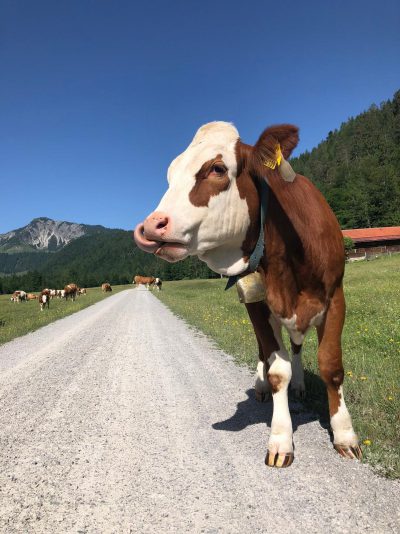Birgit Puschner is the dean of the College of Veterinary Medicine. The following faculty voice is an op-ed repurposed from the College of Veterinary Medicine.
Nov. 8th was First-generation Celebration Day. As a first-generation student myself, this is a time close to my heart. My education and my future could have gone in a very different direction, had I not driven myself to persevere and succeed.
I was the first person in my family to earn a college education, and it was quite a journey. I grew up in a small, rural town in Bavaria. In Germany, the educational system is quite different from the United States’. GPAs are measured on a 1-6 scale, with 1 being the highest. By the end of fourth grade, students who wish to obtain a college education must have a 2.5 GPA to advance in the educational system.
So, at age 10, my performance in school determined which educational and career track I would follow for the rest of my life. To complicate things, my GPA was exactly 2.5!
My parents ran a Volkswagen dealership. (My mom was a bookkeeper and secretary, and my dad was a mechanic.) They aspired for me to become a bank teller because it was considered a good career that offered high achievement and a well-respected job to a young person.
Even though I had a 2.5 GPA, neither my family nor my teacher felt I should pursue the higher education path. My fourth-grade teacher even wrote in my report that I would never overcome my difficulties in math. (One would assume that a person dealing with finances should probably be pretty darn good at math.)
Despite their advice, I kept going. In fifth grade, I moved on to advanced-level high school education. Then finally, I graduated with a GPA of 1.5 — including a 1.0 in math — which allowed me to apply to almost any university program. I had landed on the biology program to become a geneticist, but one of my advisers said to me, “Why don’t you consider veterinary school?” So, I did. I applied, and I was accepted.
In veterinary school, I decided to become an orthopedic surgeon because I found it completely fascinating. Plus, I grew up in the mechanic shop, where I learned to work with my hands and fix things alongside my dad, so I felt a connection right away with the field. However, there was no opportunity in Germany for me to pursue further training in orthopedics at the time. So, after graduating from veterinary school, I refocused and joined a mixed-animal practice.But I still wanted more training. I decided to follow a different path, which led me to a Ph.D. in physiology. This is where I learned about toxicology and, in doing so, found something else that ignited my intellectual curiosity. I’ve never regretted taking this path.
My point is, if you truly want to see what someone is capable of, you have to let them try. My parents didn’t push me to pursue higher education because it wasn’t something familiar to them. They simply wanted what would be best for me, and to them, higher education was an unknown and unpredictable pathway that I would have to navigate on my own.
But it’s okay for your path to diverge from your initial plans, and just because you decided yourself to take that path — perhaps against the recommendations of others — does not mean you will fail. In fact, flexibility, rather than rigidity, may uncover the best parts of your life. By being true to yourself and figuring out a way to persevere and continue to learn, you may land on a different path, one that’s even better than you ever imagined.
